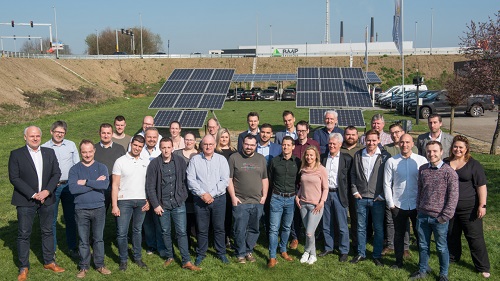For example:
– our products in 40+ countries
– helped over 50,000 households
– managed over 2,000 energy projects
– collaborated with 23 partners
– won 5 awards for best green technology
These early successes have enabled iLumen to take the lead in the green transition, where current practice is shifting towards optimized use of renewables.
The European Solar Challenge is coming up this weekend, and at iLumen we’re celebrating our 10th anniversary this year.
There’s no better moment to reflect on our journey, look at the current (energy) challenges, and share our vision for a greener future.
The past, the present, the future
This year marks iLumen’s 10th anniversary. Since then, we have seen a major shift in the solar industry and society’s perception of renewables.
Today, the green transition is in full swing and industry stakeholders are working together more than ever to accelerate it. 10 years ago, during the height of the solar energy “gold rush”, the mentality was entirely different. The private sector was a bit like the Wild West, and collaboration was nearly non-existent. Legislation was needed to push solar innovation further, yet policymakers were indecisive and lacked long-term vision.
Back then, almost nobody had a digital meter. Homeowners checked their analogue meter, saw their annual consumption and thought: How can I generate as much solar energy as possible and reach this number? Plenty of companies focussed on selling as many solar panels as they could.
Great, that meant growth, jobs and more green energy.
But to be worth the investment, those panels need to perform optimally for years. Not every company had the know-how to make this happen. As the market matured, they failed to realize that people weren’t interested in just their products. People were interested in holistic solutions.
Now, those of us who remained understood that often the solutions needed are too complex to do on our own, and industry collaborations are becoming more common. Still, we need to actively avoid building “walled gardens” and collaborate in an open ecosystem. Only then can solar energy truly be disruptive, and can people maintain their energy independence. We design and continuously improve our products with this sentiment in mind. For example, we regularly create new protocols that allow our iLusmart to connect with different transformers.
Back then, proponents of other energy sources had many critiques of solar. They compared solar energy ROI to that of other technologies, often over a period of 10 years, while a solar panel lasts 30. Today, science has shown that optimized and maintained solar energy solutions have a favourable ROI compared to most other sources, even the cheapest fossil fuels.
A decade ago, they also pointed to the fact that although solar generated a lot of power, only an average of 30% was actually used by the owner. Nowadays, it isn’t uncommon for smart homeowners to achieve 70% self-consumption when using the right solutions.
But the rest is still transferred to the grid, and people still must buy energy.
When energy prices are steady, the price of transferring to and drawing energy from the net should (roughly) cancel each other out. Unfortunately, prices are innately volatile. To complicate matters further, energy demand and supply are inelastic, meaning that changes in price barely affect our energy production and consumption.
This has never been as painfully obvious as now.
In the future, and even starting in the very near future, price volatility will only increase, especially with energy providers moving away from fixed price to variable contracts.
Only one thing about this volatility is certain: it is always the least fortunate among us that suffer the most.
To protect ourselves against this uncertainty, we can only increase our independence from the grid, which we can do by doing two things: increase self-consumption and smart energy management.
For people with solar panels, the benefit of increasing self-consumption is evident. Systems like the iLuheat can allow you to regulate your electric water heater to store excess energy as warm water. Smart charging solutions like the iLucharge can be used to fuel your electric vehicle. But for these systems to work optimally, smart energy management through systems such as the iLusmart is the key.
While increasing self-consumption is an option only available to those with solar panels, smart energy management benefits everyone. The examples I gave above are still valid. Even if you get all your energy from the grid, you still want to buy energy when the price is low and store it.
That’s why the introduction of the digital meter was so important. The transition from analogue to digital hurt people, undoubtedly. But without it, we would have no idea what our real-time consumption really looks like (which determines the price of energy). And this data is needed to optimize our energy production and consumption. Which benefits everyone.
A decade ago, I felt that there was a lack of strong, long-term vision for the energy transition. I believed that the private sector was ready to grow exponentially for a while now, but policymaker indecisiveness stifled innovation.
The last few years, my sentiment has changed.
While there’s always room for improvement, I’ve seen real progress.
For example, the European Commission pushed guidance that makes it possible to share energy, without having to pay (except distribution costs). This enables the creation of energy communities, where energy is created “in bulk” at one location, and then transferred to all the participating members.
This is the direction we need to be moving in. A green future, powered by an open ecosystem of green energy installations, managed smart.
At iLumen, we are building this future, one solution at a time.
Ismaël Ben-Al-Lal, CEO & Founder of iLumen
This article is part 2 of a 2-piece series. If you haven’t already, be sure to check out the companion article on the European Solar Challenge here.

